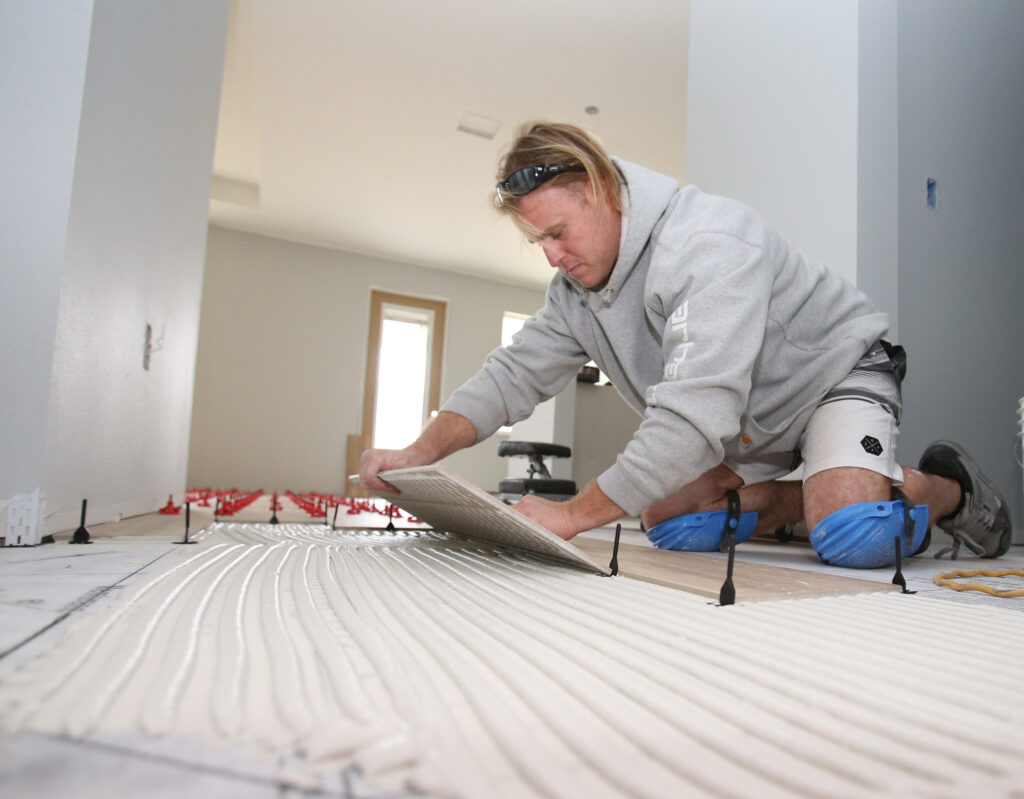Ocala to increase water and sewer impact fees 25%

Jason Norwood of Last Time Tile in Ocala, lays tile inside a new Triple Crown Homes home under construction off north Pine Avenue in Ocala on Feb. 1. The city recently approved a 25% increase to the impact fees it charges for new development. [Bruce Ackerman/Ocala Gazette]

Jason Norwood of Last Time Tile in Ocala, lays tile inside a new Triple Crown Homes home under construction off north Pine Avenue in Ocala on Feb. 1. The city recently approved a 25% increase to the impact fees it charges for new development. [Bruce Ackerman/Ocala Gazette]
After more than a decade without a ripple, Ocala’s water and sewer impact fees will see a 25% surge in May after the Ocala City Council unanimously voted for the increase recently.
The city was calculating an even steeper increase but adjusted the final amount after a report from Raftelis Financial Consultants, a utility and public sector consulting firm, recommended an increase of no more than 25%.
The current impact fees, which are charged for new development projects, have been in place since February 2010.
For a new single-family home between 2,500-3,499 square feet, water impact fees will rise from $658 to $823, while the sewage fees will increase from $2,518 to $3,148. The square footage used in the calculation is considered the standard, or equivalent single-family residential unit (ERU).
Fees are adjusted based on the actual square footage for homes larger or small than the standard.
The city’s new impact fee schedule – combining both water and sewer impact fees – for single-family homes can range from $2,383 to $4,964, based on size.
The same ERU base standard is used when calculating other types of uses including multi-family, apartments and commercial development.
Multi-family residences such as duplexes, triplexes and quadraplexes, would face new combined water and server impact fees from $4,766 to $9,530. Fees for apartments, townhomes and condominiums are calculated based on the number of bedrooms. New combined water and sewage fees for those types of uses will run from $1,986 to $3,376.
Commercial development is charged based on use. Each new motel or hotel room, for example, is charged half the standard ERU fees, according to the city’s schedule.
There are a few situations where owners of existing structures will have to pay the impact fee, according to Sean Lanier, Ocala’s city engineer.
“If your well or septic goes dry, you’ll have to connect (to city utilities) at that time,” Lanier said.
That new connection would trigger impact fees.
Fees for existing structures inside the city limits are due when plumbing permits are issued.
New structures within the city limits will pay the impact fee when the building receives its certificate of occupancy.
For new and existing structures outside of the city limits connecting to city water and sewer service, payment is due with the application for connection.
All changes will go into effect on May 1.





